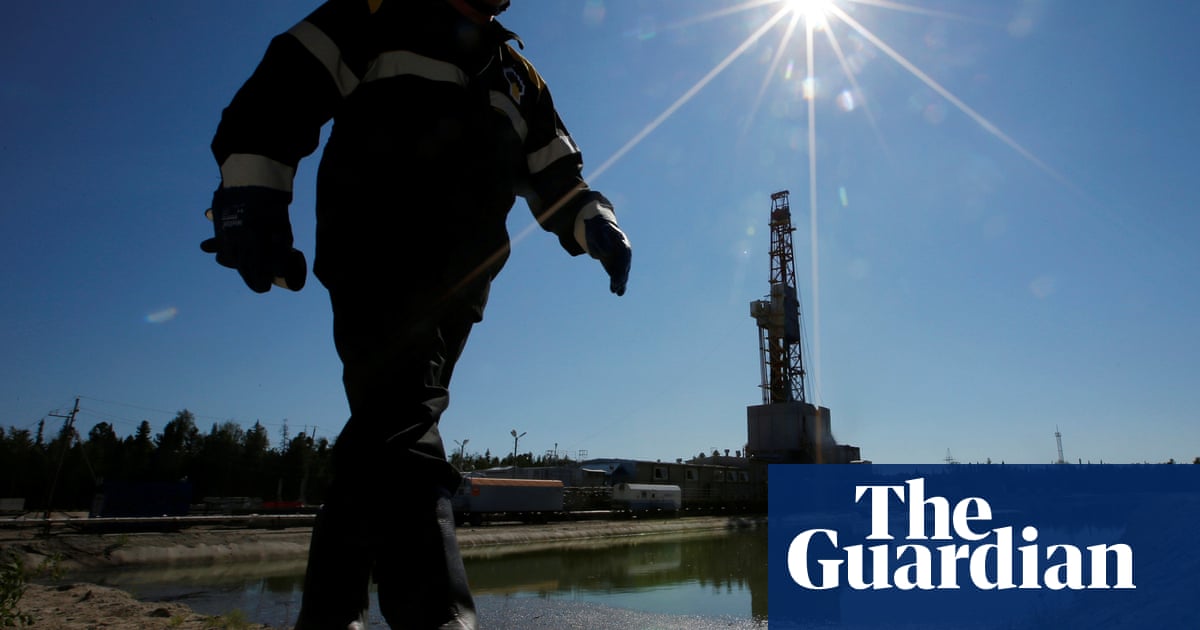The EU executive is to propose lowering the price cap on Russian oil as it seeks to tighten energy and financial sanctions targeting the Kremlin’s ability to wage war.
The president of the European Commission, Ursula von der Leyen, is expected to put forward a plan on Tuesday to reduce the price at which Russian oil can be sold from $60 (£44) a barrel to $45, according to an internal document.
The $60 price cap wasagreed through the G7 in December 2022with the aim of reducing Russia’s revenues from fossil fuels. G7 leaders are due to meet next week in Canada.
The commission will also propose tightening up measures against the “shadow fleet”, hundreds of old and poorly maintained tankers that enable Russia to export oil to countries such as India at a price above the western-imposed cap.
For the first time EU sanctions are targeted against the captain of a shadow fleet tanker, an Indian national. Officials hope this will have a chilling effect, discouraging others from crewing the vessels, which fly under a flag of convenience.
The commission also proposes listing 70 more shadow fleet vessels on its sanctions list, bringing the total under designation to more than 400. One EU diplomat estimated last month that the fleet now stood at about 800 tankers, up from just 100 two years ago.
The measures trailed by von der Leyen also include restrictions on doing business with the companies running the Nord Stream 1 and Nord Stream 2 pipelines. Nord Stream 1 was rendered unusableafter a series of underwater blastsfor which no one has ever claimed responsibility; Nord Stream 2 never received a licence. But Russia has expressed interest in reviving the gas projects connecting Russia and Germany. EU officials say they wish to dissuade investors from getting involved.
The latest proposals, which would have to be agreed unanimously by the EU’s 27 member states, would also impose restrictions on doing business with 22 banks, cutting them off from the Swift financial messaging system.
The commission last week promised “hard-biting” measures in its 18th round of restrictive measures against Russia, after von der Leyen met the US senator Lindsey Graham. The Republican senator is the author of what he says is a bill that would impose“bone-breaking sanctions”on Vladimir Putin including a 500% tariff on goods from countries importing Russian oil.
Sign up toBusiness Today
Get set for the working day – we'll point you to all the business news and analysis you need every morning
after newsletter promotion
In its account of the meeting last week, the commission said: “We need a real ceasefire, we need Russia at the negotiating table, and we need to end this war. Pressure works, as the Kremlin understands nothing else.”
European leaders last monthvowed to impose “massive” sanctions on Russiaif Putin did not agree to a 30-day ceasefire within days.
